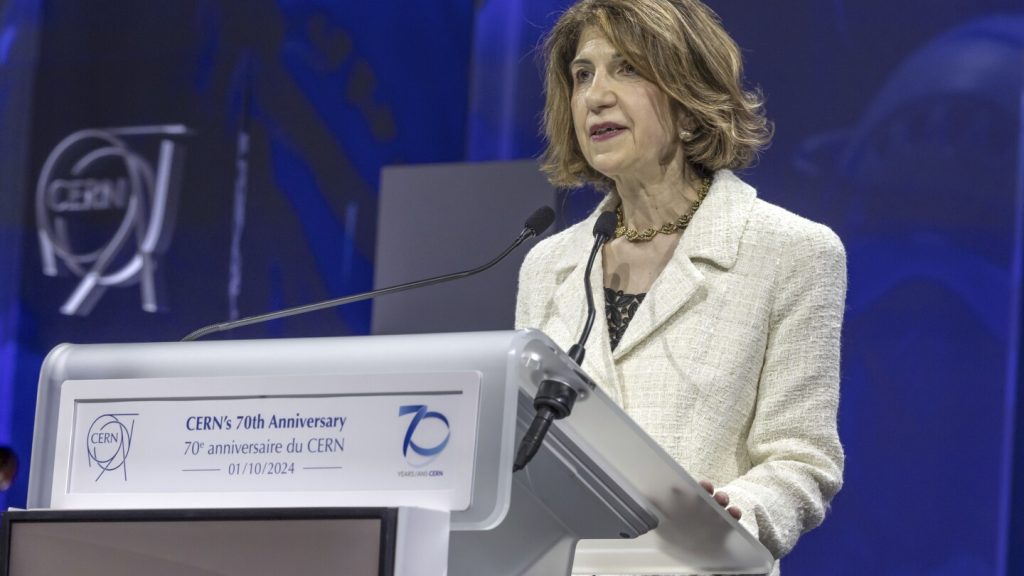The European Organization for Nuclear Research, known as CERN, is celebrating its 70th anniversary, with a focus on unlocking secrets about dark matter and promoting science for peace. CERN, located on the Swiss-French border in Geneva, is home to the world’s largest particle accelerator, the Large Hadron Collider, which accelerates particles and collides them at high speeds to study fundamental physics. The research center was established in 1954 as a way to build a state-of-the-art physics research facility in Europe and combat brain drain to America after World War II.
CERN’s research has had a significant impact on our understanding of the universe. In 2012, experiments at the Large Hadron Collider confirmed the existence of the Higgs boson, completing the Standard Model of particle physics. Additionally, CERN is where the World Wide Web was born, leading to the widespread use of the internet and digital technologies. The spillover effects of CERN’s research have reached many industries, including medicine and computer chip manufacturing, with advancements such as touch screens and PET scanners.
The future of CERN’s research aims to push the boundaries of the Standard Model and explore unanswered questions in fundamental physics. Scientists at CERN hope to solve mysteries related to dark energy and dark matter, which make up a significant portion of the universe but have yet to be fully understood. The organization has two major projects on the horizon: the High-Luminosity LHC project, scheduled to begin in 2029, and the Future Circular Collider, estimated to start operating in 2040.
Despite its focus on promoting scientific progress for peace and humanity, CERN has faced challenges related to politics. The organization’s constitution prohibits work for military requirements, leading to the suspension of ties with institutions in Russia following the country’s invasion of Ukraine. The suspension will impact CERN’s research funding but is seen as a necessary step to uphold the organization’s values. CERN currently has 24 member countries and several observer states, with plans to continue its groundbreaking research in the years to come.
In a world marked by conflicts and uncertainties, CERN stands as a beacon of collaboration and discovery. The research center’s work has not only advanced our understanding of the universe but has also led to practical applications that benefit society. By pushing the limits of technology and science, CERN continues to inspire innovation and competitiveness in various industries. As CERN looks to the future, its commitment to peaceful research and scientific progress remains unwavering, demonstrating the power of collaboration and knowledge in a challenging world.


